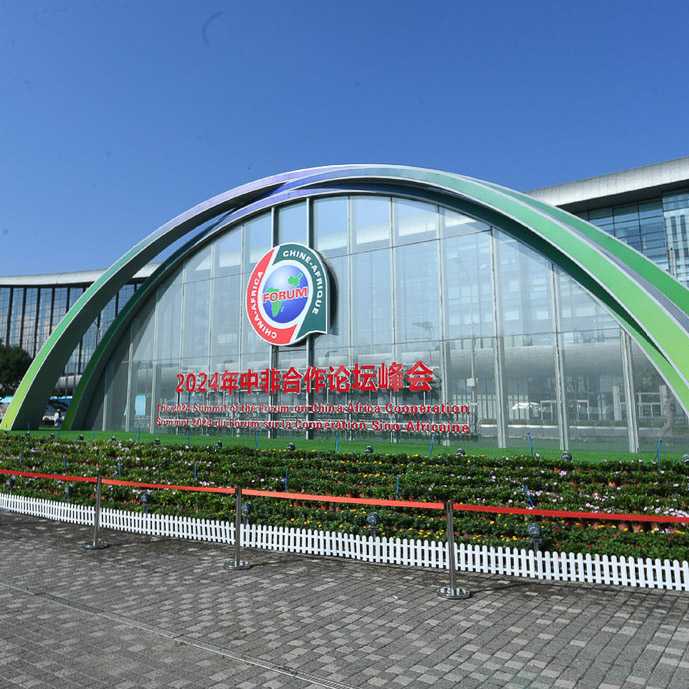

The ninth Forum on China-Africa Cooperation (FOCAC 9) was held on September 4-6 in Beijing. The event saw a record attendance of 53 African country representatives, including 51 heads of state and government. During the forum, Chinese President Xi Jinping announced the elevation of all existing Chinese bilateral relations with African countries to the strategic partnership level.
FOCAC 9 adopted two important documents: the “Beijing Declaration” and the “Beijing Action Plan (2025-2027),” both of which highlight partnership, capacity-building and sustainability. Under these plans, Chinese privately-owned enterprises (POEs), which already account for over 70% of Chinese enterprises investing in Africa, are set to invest an additional RMB 70 billion (~USD 9.98 billion) across the continent. The Chinese government is keen for POEs to play a greater role in various areas of mutual interest.
A Platform for Regular Exchanges and Cooperation
China’s focus on Africa through FOCAC and other investment initiatives over the past decade has prompted renewed attention on the region from other international powers. African leaders have been invited to the United States, Russia, South Korea, Italy and Indonesia for various “Africa Plus One” summits, though none have yet matched FOCAC—due in large part to its long history, frequency and commitment to sustained dialogue. Every three years, FOCAC brings together Chinese and African leaders to outline the strategic vision for China-Africa relations, areas of co-operation and specific funding and action plans. The Chinese Follow-up Committee, consisting of 37 government departments and agencies, aims to continue dialogue beyond the main event and implement pledges made during FOCAC.
FOCAC’s history reflects the evolving priorities of Africa and China amid geopolitical and economic uncertainty. FOCAC’s thematic focus has shifted over time, from a primary focus on economic issues in the 2000s to a range of other issues covering supply chains, sustainability, artificial intelligence, social challenges and broader themes around security and conflict avoidance. Key themes at FOCAC 9 included Africa’s focus on economic transformation, industrialization and sustainable development, alongside China’s commitment to win-win cooperation.
Key Areas of Cooperation for the Next Three Years
Expanding Trade
China’s transition from large-scale capital investment (particularly in the form of infrastructure) and towards trade is set to continue, though Chinese investment in advanced industries (see below) will continue. Imports of African agricultural and high-end industrial products will be increased, along with capacity-building for local trade such as recruitment and training of local staff, training relevant stakeholders on trade with China and providing technical support and resources to the African Continental Free Trade Area. These measures to encourage exchange at both the private and public level underscore China’s willingness for POEs and state-owned enterprises (SOEs) to build and expand overseas business across various sectors in Africa.
Digitalization
The term “digital” appears 53 times in the Beijing Action Plan, up from 24 in the Dakar Action Plan adopted at FOCAC 8 in 2021. AI also now has its own dedicated section. China is keen to strengthen digital trade cooperation and regulatory alignment with Africa and to support Chinese enterprises in expanding 5G networks, smart cities and e-commerce. Other areas of focus for cooperation include high-performance computing and robotics, data security and innovation accelerators. The plan also mentions cooperation on digital talent cultivation and STEM education and training.
Green Development
Renewable energy is central to FOCAC’s green development partnership, which both sides plan to pursue through investment, technical exchanges and the formation of policy frameworks. To support the upgrading of Africa’s energy structure, China has vowed to encourage investments in solar, wind, green hydrogen thermal energy and hydropower and offer renewable energy products and technologies. China has also pledged to operate more than 30 clean energy and green development projects, a significant increase from the ten proposed in the 2021 Dakar Action Plan. These clear targets signal China’s commitment to green development, presenting opportunities for both Chinese SOEs and POEs to leverage their expertise in Africa.
Strengthening Health Care
Health care featured as one of FOCAC’s 10 partnership initiatives, with China pledging to build capacities in health governance, personnel, service delivery, product supply chain security and research for African countries. Specific tasks include supporting Africa Centres for Disease Control and Prevention (CDC) and the African Medicines Agency, training health workers, pairing up Chinese and African hospitals, collaborating on telemedicine, supporting Africa to build its own pharmaceutical manufacturing capacities and exploring exchanges in health research. The partnership also presents potential market opportunities for Chinese SOEs and POEs in the pharmaceutical and telemedicine space.
What FOCAC 9 Means for Businesses
The Chinese government’s plan over the next three years sees Chinese POEs playing a more significant role in China-Africa exchanges. Specifically, POEs will be encouraged to enter new sectors, particularly advanced sectors such as EVs, fintech, renewable energy and digital technology, as discussed at FOCAC 9 and in the African Union’s Agenda 2063—all consistent with China’s own economic development plans.
Regardless of sector, localization and capacity-building will remain crucial. Businesses need to align their investments with Africa’s vision to develop local and more independent industries, while strategically adapting to local policies, societal norms, languages, cultures, business practices and payment habits. This involves tailoring products to meet local demand, boosting local economies through employment and cultivating local talent.
This article was co-written by APCO intern Théo H. Storella.
Photo: FOCAC


